Guest blogger Oboi Reed calls on the transit system to reckon with racial equity and mobility justice
October 5, 2021
October 5, 2021
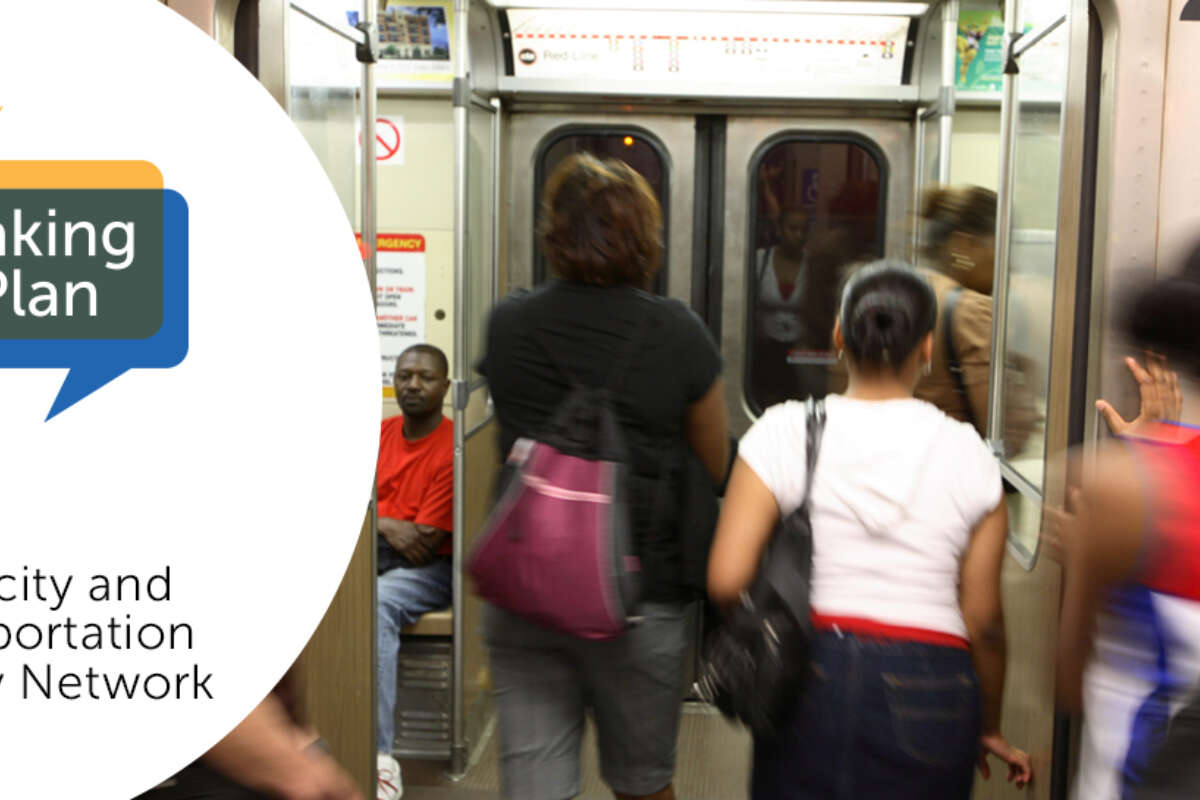
 The RTA is currently developing the 2023 Regional Transit Strategic Plan for Northeastern Illinois at a time when the challenges and opportunities facing our region’s transit system have never been greater. Making a Plan represents our effort to engage and collaborate with close stakeholders and the public. We have invited a group of transit users and thinkers to answer a set of questions for an occasional guest series on Connections, the RTA blog. The views represented in this series are not those of the RTA, but they are views we want to hear and have heard. If you have thoughts about this post, the strategic plan, or would like to participate by contributing a guest blog post, please email communications@rtchicago.org and subscribe to our newsletter to learn more.
The RTA is currently developing the 2023 Regional Transit Strategic Plan for Northeastern Illinois at a time when the challenges and opportunities facing our region’s transit system have never been greater. Making a Plan represents our effort to engage and collaborate with close stakeholders and the public. We have invited a group of transit users and thinkers to answer a set of questions for an occasional guest series on Connections, the RTA blog. The views represented in this series are not those of the RTA, but they are views we want to hear and have heard. If you have thoughts about this post, the strategic plan, or would like to participate by contributing a guest blog post, please email communications@rtchicago.org and subscribe to our newsletter to learn more.
Name: Olatunji Oboi Reed
Organization or Affiliation: President & CEO, The Equiticity Racial Equity Movement, and Co-Chair, Transportation Equity Network
Role/Responsibilities: At Equiticity, I am responsible for our movement’s overall vision and strategy, focused on research, advocacy, programs, and community mobility rituals.
Favorite transit mode or station? My favorite transit mode is riding the Pink Line train, starting at the Pulaski station near 19th & Pulaski here in the North Lawndale neighborhood on the west side of Chicago.
Why are you passionate about transit?
Growing up on the South Side of Chicago, in the Chatham and South Shore neighborhoods, my older brother Khari and I took transit with our parents to move around our city. Transit in Chicago was never perfect, and it is not perfect today. Our transit system is in dire need of operationalizing a comprehensive commitment to racial equity and mobility justice. It is a critical lifeline for Black and Brown people, especially living on the South and West sides of Chicago, helping us reach important destinations, such as job centers, healthcare, schools, grocery stores, recreation, and civic engagement. I am passionate about transit because I realize how important it is in our neighborhoods and I am confident a full-throated operational commitment to racial equity in our region will contribute to dismantling structural racism in our transit system, removing racialized transportation inequities, and improving life outcomes for Black and Brown people.
What do you see as the greatest challenges and opportunities for the Chicago region’s transit system over the next ten years? What is the biggest barrier to realizing these opportunities?
The greatest challenges for the Chicago region’s transit system are the lack of an operational commitment to racial equity and mobility justice, fare evasion enforcement, decreased ridership, perceptions around the lack of safety, inability to reach job centers, threats from emerging transportation technologies (car share, micromobility, autonomous shuttles), and a lack of free fares for poor people.
In turn, the greatest opportunity for the Chicago region’s transit system is formally operationalizing racial equity and mobility justice, ensuring resources are dedicated to removing racialized transportation inequities and improving transportation related outcomes for Black and Brown communities.
The largest barrier to realizing this opportunity is the lack of courage from complacent policymakers and entrenched bureaucrats to go fight for racial equity as though lives depend on it. Because lives do depend on it. Black and Brown people are dying in our region, and a racist regional transit system is contributory.
Tell us your ideas for improving access to transit within the Chicago region and what policy levers or partnerships might be required to make the changes you envision?
We must decriminalize fare evasion and go further by making transit free for poor people. Our system must remove police enforcement from transit and implement an ambassadors program to help keep transit safe and improve perceptions around safety. Our system must ensure neighborhoods with the highest levels of unemployment and poverty have transit lines to take us to and from the job centers.
Our system is in need of piloting and implementing emerging transportation technologies, including electrification and autonomous shuttles. These implementations must be done in full, compensated partnership with community-based organizations on the ground in neighborhoods, with the leadership to deliver these new technologies in our neighborhoods coming from Black and Brown people in a way which minimizes harm and maximizes benefits.
We need a unified payment card to access all transit and other transportation providers, while also ensuring poor people are not penalized for paying with cash.
Looking ahead, what future force of change has the greatest potential to transform or disrupt our region’s transit system?
Disruption will come from emerging transportation technologies, including shared, autonomous vehicles, as well as potential for privatization of transit, such as autonomous shuttles.
The boost in micromobility and shared mobility over the past several years, especially during the pandemic, will continue to disrupt transit and may further suppress ridership.
The greatest potential for transforming our transit system will come from following this process:
Subscribe to our Newsletter
Related Articles
 New project management oversight report highlights more than 100 projects representing $8.2 billion in capital investments
New project management oversight report highlights more than 100 projects representing $8.2 billion in capital investments
The RTA’s Project Management Oversight (PMO) program ensures that the Service Boards—CTA, Metra, and Pace—are spending capital funds and managing their infra...
June 27, 2024 Transportation Tuesday recap: Improving and expanding the transit system strategically
Transportation Tuesday recap: Improving and expanding the transit system strategically
With last year’s adoption of Transit is the Answer came 15 new evaluation metrics that comprise a strategy for evaluating and selecting capital projects. Now...
May 30, 2024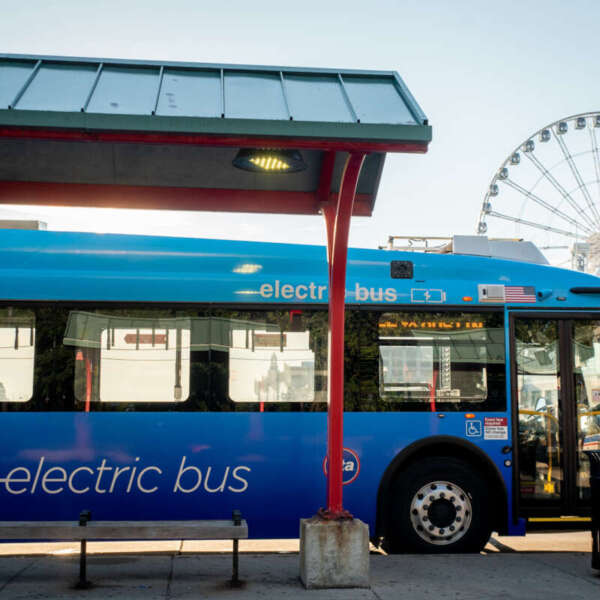 Transit is the answer to meeting Illinois’ climate goals
Transit is the answer to meeting Illinois’ climate goals
As we celebrate Earth Day 2024, the RTA is announcing Transforming Transit —the agency’s commitment to lead the Chicago region’s transit system into the futu...
April 18, 2024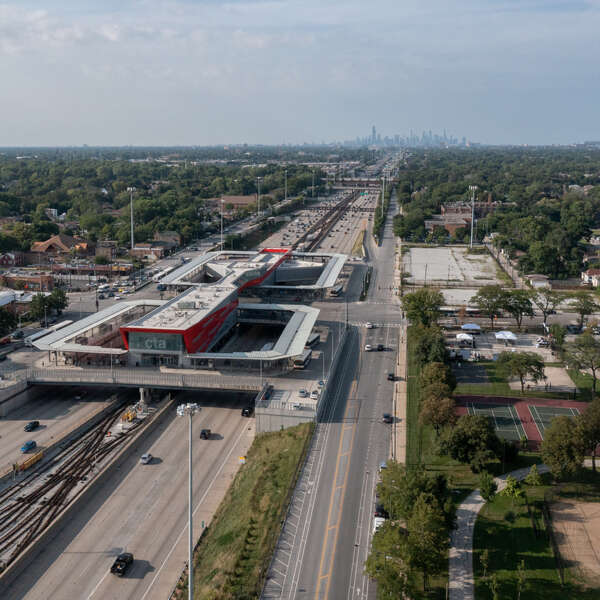 Three years into the Infrastructure Investment and Jobs Act, Chicago’s transit system is winning competitive grants and advancing critical projects
Three years into the Infrastructure Investment and Jobs Act, Chicago’s transit system is winning competitive grants and advancing critical projects
The Infrastructure Investment and Jobs Act (IIJA), passed in 2021, represented a historic level of federal investment for shoring up the nation’s infrastruct...
March 12, 2024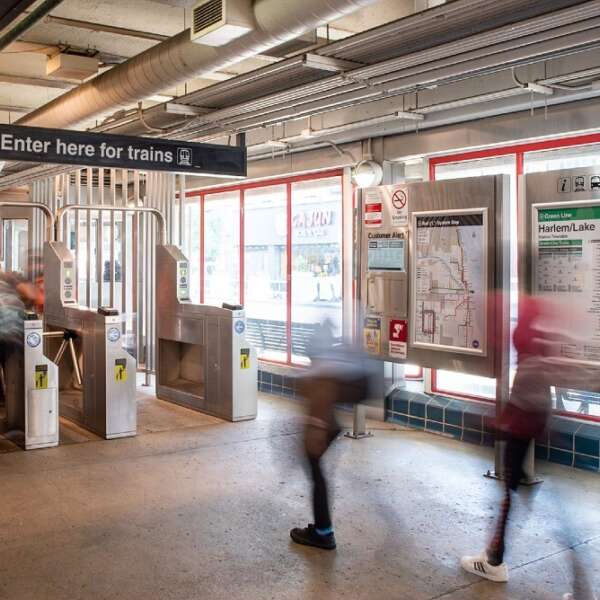 Why fully funding paratransit service and reduced fare programs is key to closing the transit budget gap
Why fully funding paratransit service and reduced fare programs is key to closing the transit budget gap
With transit facing a fiscal cliff in the coming years, fully funding critical programs like ADA paratransit service and free and reduced fare programs is on...
February 29, 2024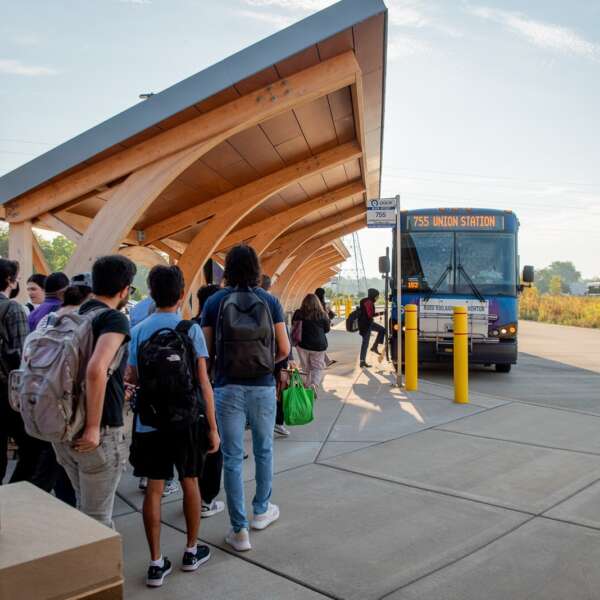 RTA releases semi-annual project management oversight report highlighting more than 100 capital projects
RTA releases semi-annual project management oversight report highlighting more than 100 capital projects
Under its Project Management Oversight (PMO) program, the RTA ensures that the Service Boards—CTA, Metra, and Pace—are spending capital funds and managing th...
January 3, 2024